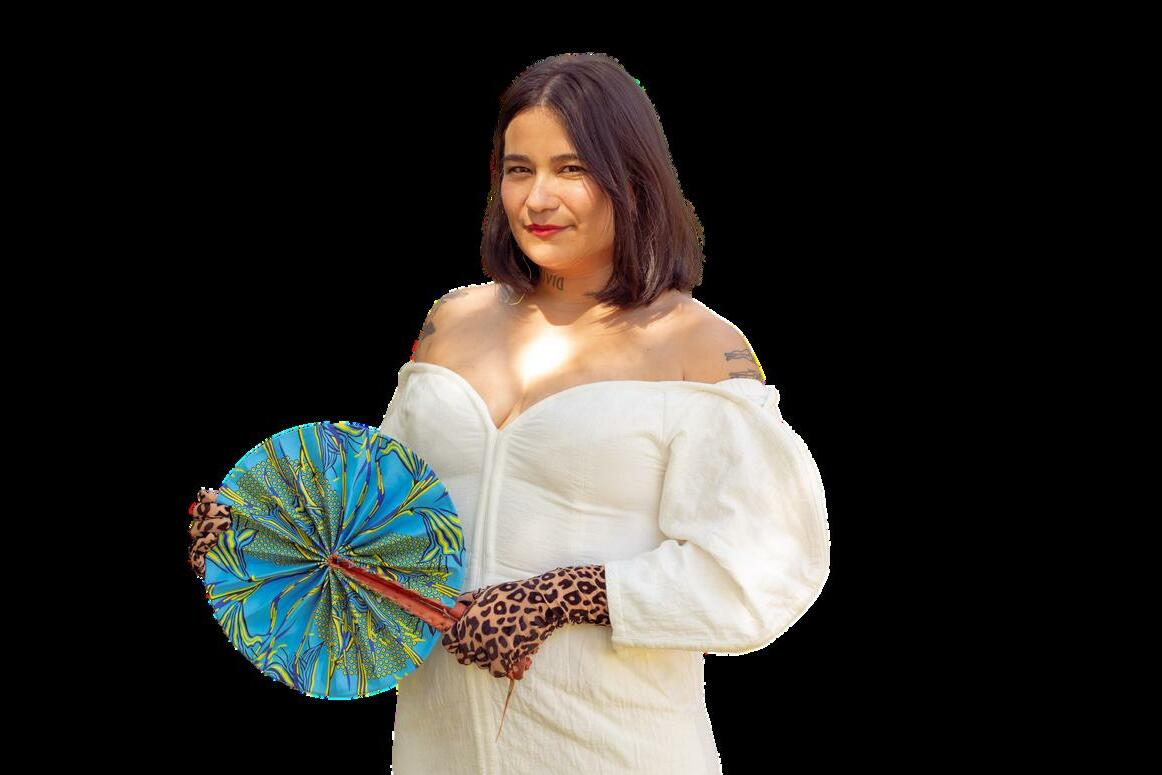
4 minute read
A Love Letter to Women of Color: Interview with Author Prisca Dorcas Mojica Rodríguez
The founder of Latina Rebels, an online platform that boast over 300,00 organic followers, she has been featured on Telemundo, Univision, Mitú, Huffington Post Latino Voices, Guerrilla Feminism, Latina Mag, Cosmopolitan, Everyday Feminism, and was invited to the White House in the Fall of 2016.
Interview Conducted by Laura Pachón
Was there a specific experience in your life that you can point to that was the driving force behind For Brown Girls with Sharp Edges and Tender Hearts? What clicked that made you think “I want to make my book for young girls of color?”
My career follows a non-traditional path I started writing out of a sense of desperation, to feel heard, to not harm myself, to jolt myself back to reality. I never thought anyone would read my book, let alone this many people. I started writing out of desperation, and I started on Instagram captions I never imagined my captions would turn into a book
May 2015 I had moved back home from grad school and could not find a job. I was not qualified enough, white enough, connected enough, professional-looking enough, and I kept experiencing sexual harassment from bosses at different temp jobs I was desperate to find a job, and it was impossible to find something safe and long term. I even tried to become a piercer at a tattoo parlor, and began an apprenticeship. But had to quit because the piercer I was learning from kept hitting on me.
When I wrote “Dear Brown Girl” in November of 2015, I was working at the outlet Neiman Marcus store, as a sales associate. I was writing because I was struggling to keep going. But when I saw that my audience was mostly young women, I did decide that I was going to write kindly to them. I come from a context where being strong is valued, and while that is a coping skill, it does not take into account how much neglect our tenderness gets when we are so busy “keeping it together.”
When the book idea was first proposed to me, by my literary agent, I thought hard about what I needed during my hardest times, and what I needed was someone to speak the truth to me and to love on me. I wanted to be validated and understood. I wanted someone to name how impossible it was to be an immigrant woman of color who also had no financial buffer to dream but still dared to do so I wrote to my audience with that focus at the center

Can you describe what it’s like to be a Latina author who has been awarded the chance to have a platform and a variety of opportunities?
I think it is a misnomer to say I was awarded a platform. I decided to create Latina Rebels in 2013 to help people, and in a decade, it has slowly grown into the thousands of followers it has today. And with that visibility comes a big responsibility, and for me that responsibility is to use this platform to put eyes on other dope folks of color who are made invisible in a society that rewards whiteness for whiteness’ sake. But the task of ethically and responsibly running a platform is hard, and should not be taken lightly How do I describe what it is like to be a Latina author with a platform, it is a serious responsibility to create opportunities for as many people of color from working class contexts as possible It is constantly learning to leave the door open, and learning how to ensure that I am coming into these opportunities with care for those who will do it better after me
What legacy do you hope to leave to all young girls and women of color who look up to you and your written works?
I hope that my legacy is one of insistence in personal liberation that turns into communal liberation.
When writing this book, did you experience anything, personal or not, that changed your way of living and/or your world outlook?
I learned that I can write a book, and that I am not just a silly girl who cannot write because I do not have the proper pedigree Rather, writing is something that came from within me, and no one can take that away from me. I learned that I am capable of so much more than what life prescribed for me based on my gender, race, and socioeconomic background, in a real tangible way. I proved to myself what I had been writing about for years, and it felt so good to “make it” while not breaking myself for the white gaze





